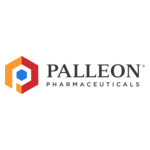
Palleon Presents Preclinical Data on Lead Program E-602 and Novel Bifunctional PD-L1-Targeted Sialidase
- E-602 exhibits sustained, dose-dependent effects on desialylation of immune cells and a wide safety margin -

- Bifunctional PD-L1-Targeted Sialidase exhibits enhanced efficacy compared to non-targeted sialidase or anti-PD-L1 antibody in mouse colon carcinoma model -
WALTHAM, Mass.--(BUSINESS WIRE)--Palleon Pharmaceuticals, a company pioneering the field of glyco-immunology to treat cancer and inflammatory diseases, today presented new preclinical data on the company’s lead oncology program, E-602, as well as data supporting Palleon’s novel bifunctional PD-L1-Targeted Sialidase, in two poster presentations at the American Association for Cancer Research Annual Meeting in New Orleans, La.
Data presented from non-human primate studies of E-602 (formerly Bi-sialidase) indicate that E-602 exhibits sustained, dose-dependent pharmacodynamic effects on desialylation of immune cells and a wide safety margin. E-602 produced dose-dependent effects on desialylation of immune cells, such as T cells, monocytes, and dendritic cells, with the effect of T cell desialylation sustained for up to seven days post-dosing. E-602 was well tolerated with NOAEL (Non-Observable-Adverse-Effect-Level) determined to be 100 mg/kg.
Additional data being shared at AACR detail the development of Palleon’s novel bifunctional PD-L1-Targeted Sialidase, and initial in vitro and in vivo evaluation. The bifunctional PD-L1-Targeted Sialidase was constructed utilizing one chain of engineered human sialidase and a second chain of anti-PD-L1 antibody. In the human PD-L1-expressing mouse colon carcinoma model CT26, the PD-L1-Targeted Sialidase demonstrated modulation of immune cell infiltration in the tumor microenvironment and exhibited enhanced efficacy compared to a non-targeted sialidase or the anti-PD-L1 antibody.
“We’re pleased to share this first look at data from our bifunctional PD-L1-Targeted Sialidase. This molecule offers a novel immunotherapeutic approach of inhibiting two orthogonal checkpoint pathways by cleaving immunosuppressive sialic acids and blocking the PD-1/PD-L1 axis,” said Li Peng, Chief Scientific Officer. “Additionally, we’re pleased with the encouraging pharmacodynamic effects and wide safety margin seen in IND-enabling GLP non-human primate toxicity studies for E-602, on the basis of which we have now advanced this program into Phase 1/2 study. We look forward to continuing to progress this study with the goal of making this novel immunotherapy available for patients with cancer.”
The posters can be accessed via the “Publications” section of Palleon’s website.
About Palleon Pharmaceuticals
Palleon Pharmaceuticals is the leading biotechnology company developing drugs that harness glyco-immunology to treat cancer and inflammatory diseases. The company’s proprietary platforms overcome scientific hurdles in the glycobiology field to create novel therapeutics for devastating diseases characterized by immune system dysfunction. Palleon’s lead program in oncology, E-602, is an enzymatic degrader of immunosuppressive sialoglycans on tumors and immune cells which is now being evaluated in a Phase 1/2 study (NCT05259696). www.palleonpharma.com
Contacts
Palleon Media Contact
Thomas Stephenson
Ten Bridge Communications
thomas@tenbridgecommunications.com
(617) 448-1803
Editor Details
-
Company:
- Businesswire
